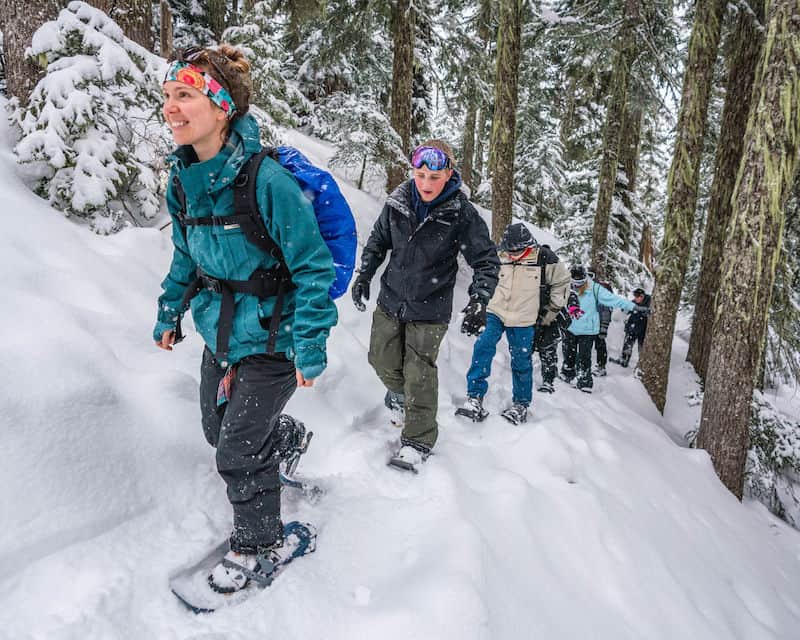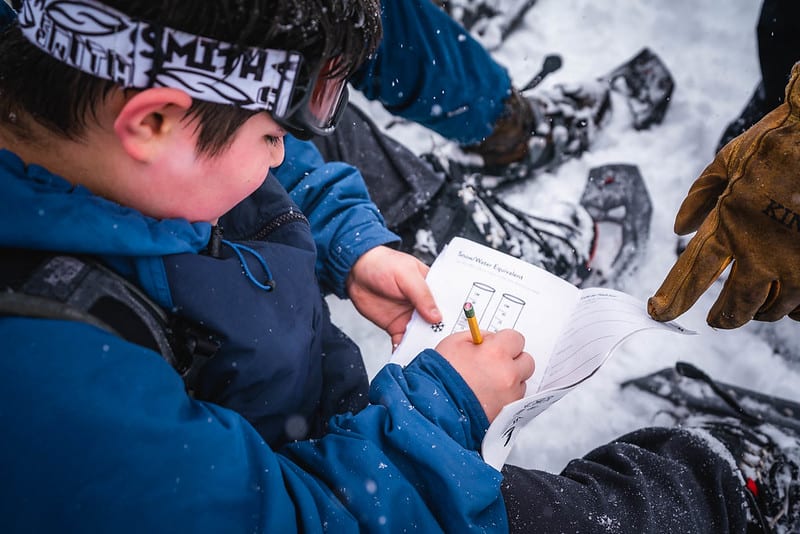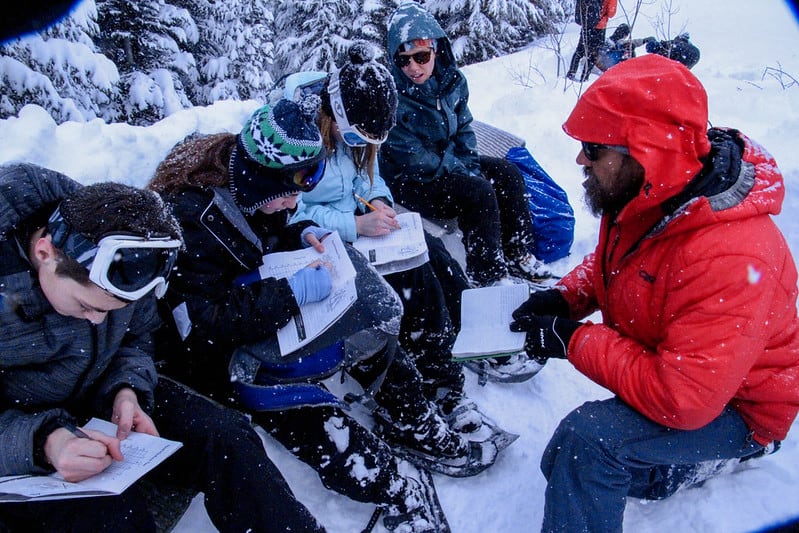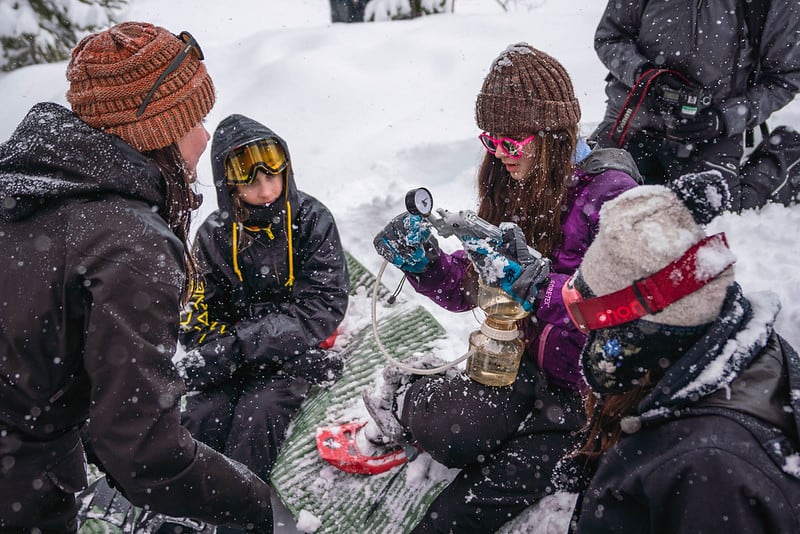
Mt. Baker Snow School: Making climate science personal
On Sept. 20, thousands of people took to our local streets as part of the global Youth Climate Strike.
Though activists continue to provoke thought and inspire action, the scale of the problem can feel daunting. Mt. Baker Snow School provides a local context in which climate science becomes more personal, encouraging a sense of responsibility and hopefulness. By investigating snowpack, watersheds and weather, students understand the problem in a tangible way and progress toward engineering solutions.
This winter, approximately 650 middle-schoolers will travel to Mt. Baker Ski Area to gain knowledge that will enable them to become the leaders we need to navigate inevitable challenges ahead.
A collaborative program led by North Cascades Institute, Mt. Baker Snow School provides a classroom orientation followed by a one-day exploration of applied science. While snowshoeing, students analyze snow profiles with Northwest Avalanche Center educators, collect snow algae samples for Western Washington University’s Living Snow Project, observe snow crystals, test for snow water equivalent, and make observations of weather, plants and animals. The goal is for students, instructors and teachers to better understand how the quantity and quality of the snowpack impacts the health of the watershed.



Small learning groups are guided by community volunteers who engage in their own learning process. Bre Harris, a former educator, says, “As a Snow School instructor, I gained a unique perspective on how weather, terrain, snow crystal morphology and snowpack analysis provide clues about changing climate and water supplies.”
Participants link the snowpack of the North Cascades to their daily lives by understanding the connectivity of a watershed. A former Snow School student reflects, “I learned many things about snow, like almost all the snow up on Mt. Shuksan melts and goes into the rivers and streams all around.”
This awareness is particularly important as the mountain snowpack decreases and glaciers continue to recede. The communities we love, the water we drink and the food we eat are all interwoven, derived from water held for us in the craggy trust of the mountains.
By participating in ongoing scientific research in our mountain ecosystem, Mt. Baker Snow School provides youth with an opportunity to reflect on this interconnectedness and encourages all of us to become the change-makers we so desperately need.
If you’re looking for a way to support the climate movement, consider becoming a volunteer instructor for Mt. Baker Snow School. By educating youth about climate science within the context of our local mountains, you’ll contribute directly to their development as global leaders.
EXCITING UPDATES FOR SNOW SCHOOL 2020:
- Inna, a Youth Leadership Adventures intern last year, will join us as an instructor
- Rachel Grasso, from cohort 16 of our M.Ed. Graduate program, will be the coordinator while Abby Sussman welcomes a new baby to her family
- We are partnering with WWU professor Dr. Alia Khan and her graduate students to develop a new lesson on the albedo effect. Check out her upcoming expedition at climatesentinels.com.
- We were thrilled with a record number of applicants for volunteers and interns this year, including past Snow School and Forest School instructors!
- All Burlington-Edison middle schools will attend
- Students from Concrete High School will be joining for the first time this season
- We’re excited to continue our close collaboration with teachers Shannon Flory, Eric Henry, Neal Schlegal, Jordan Mackey, to extend the Snow School experience into the classroom
- Over 700 young people — a record for our 5 years running Snow School -—are slated to attend
Abby Sussman is the School Day Programs Coordinator at North Cascades Institute. To find out more about applying for Snow School, go to http://www.ncascades.org/signup/schools/snow-school

